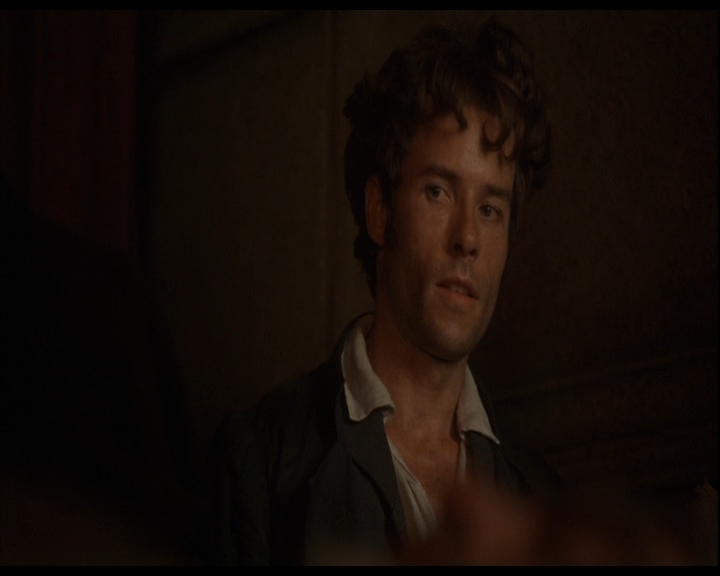Is The Count Of Monte Cristo Still Relevant? A Modern Review

Table of Contents
Enduring Themes of Revenge, Justice, and Betrayal
The enduring power of The Count of Monte Cristo lies in its exploration of timeless themes that continue to resonate deeply with modern readers. Revenge, justice, and betrayal are not merely plot devices; they are complex moral and psychological explorations that tap into the fundamental human experience.
- The seductive nature of revenge: The novel vividly portrays the seductive allure of revenge, showing how it can consume a person's life and distort their judgment. Edmond Dantès's journey highlights how the desire for retribution can become a destructive force, leading to unforeseen consequences.
- The complexities of justice and morality: The Count of Monte Cristo doesn't offer easy answers regarding justice and morality. Edmond's actions, while understandable given his suffering, raise crucial questions about the nature of justice and whether revenge can ever truly be considered just. The novel forces readers to grapple with the moral ambiguities inherent in seeking retribution.
- The devastating consequences of betrayal: The betrayal Edmond suffers at the hands of his friends and rivals serves as a powerful illustration of the devastating consequences of broken trust. This theme is universally relatable, regardless of time period, as betrayal remains a profoundly painful experience.
- The human desire for retribution: The novel explores the primal human desire for retribution – the instinct to seek justice when wronged. This innate desire transcends time and culture, making the story's central conflict readily understandable to modern audiences. The Count's meticulous planning and execution of his revenge highlight the lengths to which people will go to seek justice when formal systems fail them.
The Count's Character: A Modern Anti-Hero?
Edmond Dantès's transformation from a naive young man to a cunning and vengeful Count is one of the most compelling aspects of the novel. His methods are often ruthless, yet his motivations are rooted in profound suffering and a desire for justice. This makes him a fascinating character study, and arguably a precursor to the modern anti-hero.
- Dantès' moral ambiguity: He walks a fine line between justice and vengeance, blurring the boundaries and making his actions morally complex. This moral ambiguity is a key factor in his enduring appeal, as he is not simply a good guy or a bad guy.
- The line between justice and vengeance: The novel constantly questions the difference between seeking justice and enacting revenge. Edmond's actions, while often driven by a desire for justice, frequently cross the line into vengeance, forcing readers to confront the ethical implications of his choices.
- His emotional depth and vulnerability: Despite his calculated actions, Edmond retains a deep emotional core, revealing moments of vulnerability and regret. This complexity allows readers to connect with him on a human level, despite his sometimes questionable methods.
- His methods and their impact on others: The collateral damage inflicted by Edmond's revenge raises important questions about the consequences of our actions and the cyclical nature of violence.
Social Commentary and Political Intrigue
Beyond its compelling narrative, The Count of Monte Cristo offers insightful social commentary on class, power, and corruption, themes that remain deeply relevant in contemporary society. The novel’s political intrigue, though set in a bygone era, mirrors many of the power dynamics and abuses of authority we see today.
- The role of social class in shaping destiny: Edmond's fate is significantly shaped by his social class, highlighting the systemic inequalities that can lead to injustice. This remains a pressing concern in modern society, where socioeconomic disparities continue to impact opportunities and outcomes.
- Corruption within systems of power: The novel depicts widespread corruption within the French judicial and political systems. This mirrors the persistent issue of corruption in various governmental structures around the world, showcasing how easily power can be abused.
- The abuse of authority: The novel showcases various instances of abuse of authority, reinforcing the dangers of unchecked power and the importance of accountability. This resonates strongly with contemporary discussions about police brutality, political scandals, and corporate malfeasance.
- The manipulation of social structures: The characters skillfully manipulate social structures to achieve their goals, highlighting how easily power dynamics can be exploited. This mirrors the complex ways individuals and groups manipulate societal systems for personal gain in our current world.
The Novel's Narrative Structure and Literary Merit
The Count of Monte Cristo is not just a compelling story; it's a masterclass in storytelling. Dumas's skill in crafting suspense, building characters, and employing narrative techniques continues to influence writers today.
- The effectiveness of the cliffhangers: Dumas expertly uses cliffhangers to keep readers engaged, building anticipation and maintaining a high level of suspense throughout the novel.
- The use of flashbacks and foreshadowing: The strategic use of flashbacks and foreshadowing enhances the narrative's complexity and depth, adding layers to the story's unfolding.
- Dumas's skill in building suspense: The novel is a testament to Dumas's mastery of suspense, drawing the reader into Edmond's world and keeping them on the edge of their seats.
- The novel's impact on the genre: The Count of Monte Cristo significantly impacted the adventure and revenge genres, influencing countless subsequent works. Its influence is still felt today.
The Enduring Relevance of The Count of Monte Cristo
In conclusion, Is The Count of Monte Cristo still relevant? The answer is an unequivocal yes. This classic novel explores timeless themes of revenge, justice, betrayal, and the corrupting influence of power, making it remarkably relevant to contemporary readers. The Count's character remains a compelling study in moral ambiguity, and the novel's intricate plot and masterful storytelling continue to captivate audiences. From its exploration of social injustice to its thrilling narrative, The Count of Monte Cristo offers a timeless exploration of the human condition. Pick up a copy today and experience the timeless power of this classic tale of revenge, justice, and the enduring human spirit. Does the quest for revenge ever truly bring lasting satisfaction? What price are we willing to pay for justice?

Featured Posts
-
 The Untold Story Of Peter Greens Departure From Fleetwood Mac
May 04, 2025
The Untold Story Of Peter Greens Departure From Fleetwood Mac
May 04, 2025 -
 Navigating Complex Relationships Gigi Hadid Bradley Cooper And Leonardo Di Caprio
May 04, 2025
Navigating Complex Relationships Gigi Hadid Bradley Cooper And Leonardo Di Caprio
May 04, 2025 -
 Fim De Contrato Empresa De Consultoria De Fred Luz E Corinthians Em Disputa
May 04, 2025
Fim De Contrato Empresa De Consultoria De Fred Luz E Corinthians Em Disputa
May 04, 2025 -
 Count Of Monte Cristo A Review Of Alexandre Dumas Masterpiece
May 04, 2025
Count Of Monte Cristo A Review Of Alexandre Dumas Masterpiece
May 04, 2025 -
 Angelina Censori Photos And Information On Biancas Sister
May 04, 2025
Angelina Censori Photos And Information On Biancas Sister
May 04, 2025
Latest Posts
-
 Kentucky Derby 2025 Pace Prediction Key Horses And Their Impact
May 05, 2025
Kentucky Derby 2025 Pace Prediction Key Horses And Their Impact
May 05, 2025 -
 The 2025 Kentucky Derby Pace Scenarios And Their Implications
May 05, 2025
The 2025 Kentucky Derby Pace Scenarios And Their Implications
May 05, 2025 -
 Examining The 2025 Kentucky Derby Anticipating The Winning Pace
May 05, 2025
Examining The 2025 Kentucky Derby Anticipating The Winning Pace
May 05, 2025 -
 Kentucky Derby 2025 Factors Influencing The Race Pace
May 05, 2025
Kentucky Derby 2025 Factors Influencing The Race Pace
May 05, 2025 -
 Colonial Downs Stones Big Announcement The Virginia Derby Is Coming
May 05, 2025
Colonial Downs Stones Big Announcement The Virginia Derby Is Coming
May 05, 2025
